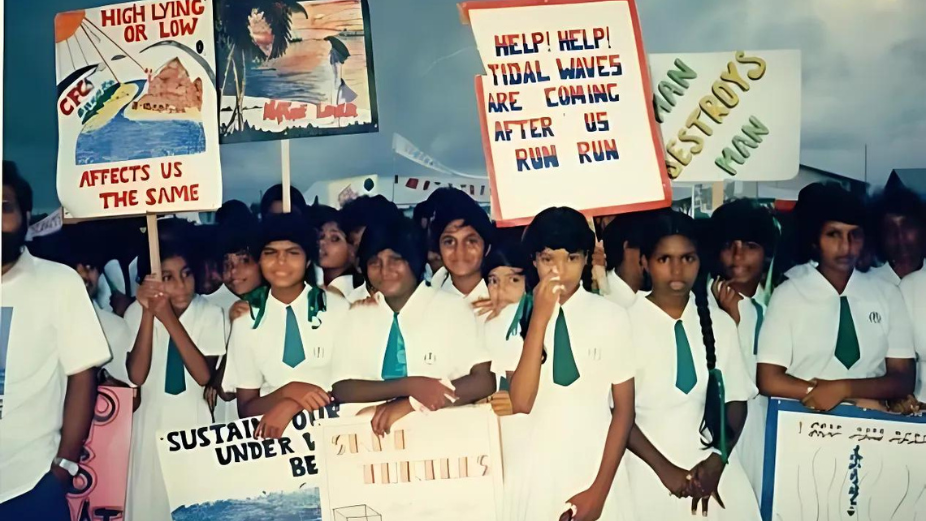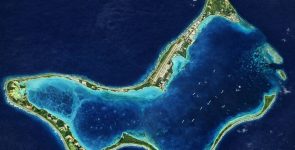
With a population of around 520,000 people, the Maldives is one of the smallest nations on the planet, both in terms of size and population. Spread across 1,192 coral islands in the Indian Ocean, this tiny country might seem insignificant in the grand scheme of global geopolitics. However, appearances can be deceiving. The Maldives has managed to carve out an influential position on the international stage, particularly through multilateralism and its role in the United Nations (UN). In an era where the voices of small states often go unheard, the Maldives has shown that size does not limit the impact.
Small Country, Big Voice
One of the key strengths of multilateralism is that it provides equal footing for countries, regardless of their size or economic power. In the context of the UN, each member state is afforded the same opportunity to address global concerns and contribute to the international dialogue. The Maldives has consistently used this platform to raise issues that are critical not only to its survival but also to the global community.
Since joining the UN in 1965, shortly after gaining independence from the United Kingdom, the Maldives has been a staunch advocate for small island nations. It has continuously used multilateral forums to represent the interests of Small Island Developing States (SIDS) and highlight issues like climate change, which threaten their very existence. Despite its size, the Maldives has managed to punch above its weight, engaging with larger, more powerful nations to ensure that its voice is heard on matters of global significance.
Climate Change: A Matter of Survival
Perhaps the most prominent example of the Maldives’ effective use of multilateralism is its leadership on climate change. The Maldives, as the world’s lowest-lying country with an average elevation of just 1.5 metres above sea level, faces an existential threat from rising sea levels. While the Maldives’ carbon emissions are negligible compared to major industrialised nations, it is one of the countries most affected by global warming. Recognising that its survival is contingent on global action, the Maldives has been one of the most vocal proponents of climate action on the international stage.
At the UN General Assembly, the Maldives has repeatedly called for urgent global cooperation to combat climate change, positioning itself as a moral leader on the issue. In 1987, long before climate change became a mainstream concern, the Maldives was already warning of the dangers posed by rising sea levels. This foresight has allowed the Maldives to champion the cause of environmental protection for decades, securing its role as a key player in international climate negotiations.
A key moment in this advocacy occurred in November 1989, when the Maldives hosted the first-ever small states conference on sea level rise, with funding from the Commonwealth and the Government of Australia. This landmark event was among the earliest international gatherings on this issue, bringing together delegates from 14 island states as well as scientists from fields such as oceanography, climatology, meteorology, and geology.
Ever since, the Maldives has participated in the Paris Agreement and other climate-related multilateral forums, exemplifying how a small country can influence global policy. The Maldives’ participation in the Paris Agreement and other climate-related multilateral forums exemplifies how a small country can influence global policy. The country has shown that when small nations act in concert with others through multilateralism, they can bring about meaningful change. By banding together with other vulnerable nations, the Maldives has contributed to the creation of climate adaptation and mitigation funds that support countries most impacted by environmental change.
Building Global Alliances
For a small country like the Maldives, the ability to form alliances with other nations is crucial. Through its involvement in the UN, the Maldives has fostered relationships with countries across the globe, transcending regional or economic divides. These alliances have been vital in areas such as trade, security, and development.
One of the ways the Maldives has utilised multilateralism is by aligning itself with groups like the Alliance of Small Island States (AOSIS), a coalition of 39 low-lying coastal and small island countries that are particularly vulnerable to climate change. By pooling their voices, these countries have managed to draw the attention of the international community to issues that would otherwise be sidelined. Most recently, the Maldives co-chaired a report with the Government of Antigua and Barbuda emphasising the need for sustainable development and highlighting the critical link between debt sustainability and climate financing. Through this collaboration, the Maldives has been a key player in AOSIS, contributing to its collective bargaining power within the UN framework.
Moreover, the Maldives has built strong bilateral relationships with countries like India, the United States, and China through its participation in multilateral forums. These relationships have brought about tangible benefits, such as development aid, climate financing, and security cooperation. The Maldives’ ability to engage with these more powerful nations on equal terms underscores the importance of multilateral diplomacy.
Multilateralism as a Defence Mechanism
For a country with limited military or economic power, multilateralism also serves as a form of protection. The Maldives is situated in a geopolitically strategic region, making it a point of interest for larger powers. Through its engagement with the UN, the Maldives has been able to navigate these complex waters, relying on international treaties and norms to safeguard its sovereignty.
Participation in global organisations also helps buffer the Maldives against regional tensions. The country’s commitment to UN peacekeeping efforts, though limited in scale, is a testament to its understanding of the importance of global security. The Maldives’ voice in these discussions, while small, contributes to the broader dialogue on peace and conflict resolution.
The Role of Multilateralism in Domestic Development
Beyond global advocacy, multilateralism has had a direct impact on the Maldives’ domestic development. The Maldives has partnered with various UN agencies, such as the United Nations Development Programme (UNDP) and the World Health Organization (WHO), to improve its public health, education, and infrastructure. According to UNDP Maldives, its work in the country is made possible through the generous support of the European Union, the Government of Japan, Australia, and UK Aid. These partnerships have helped the country advance in key areas such as maternal health, child welfare, and poverty alleviation.
The Maldives’ commitment to the United Nations’ Sustainable Development Goals (SDGs) has driven its development strategies. In return, multilateral assistance has provided the Maldives with critical funding and expertise, enabling it to tackle challenges that it could not address alone. For example, since September 2018, the U.S. has provided $36 million in bilateral foreign assistance to the Maldives to support its development efforts. Additionally, projects funded by the World Bank and UNDP have been instrumental in improving access to clean water, education, and healthcare across the islands.
Why Multilateralism Matters
The Maldives’ success on the international stage through multilateralism speaks to a broader truth: size does not define influence. In an interconnected world, the ability to work with others, form coalitions, and engage in collective action is far more important than individual power. Multilateralism has allowed the Maldives to play a disproportionate role in global governance, despite its small population and limited resources.
The Maldives’ participation in the United Nations has also been essential for its long-term security and prosperity. Multilateral organisations provide the country with access to development aid, technical expertise, and forums where its concerns are taken seriously. Without multilateralism, the Maldives would struggle to have its voice heard on the world stage, and it would be far more vulnerable to external pressures.
In many ways, the Maldives embodies the power of multilateralism. It has proven that even the smallest of nations can have a significant impact when they engage meaningfully with the international community. Through its work with the United Nations and other multilateral bodies, the Maldives has not only secured its place in the world but has also championed causes that affect millions of people globally.
As the world faces increasingly complex and interconnected challenges, the Maldives’ commitment to multilateralism remains as vital as ever. By continuing to work within the framework of international cooperation, the Maldives can ensure that its voice is heard, its interests are protected, and its future remains secure.











